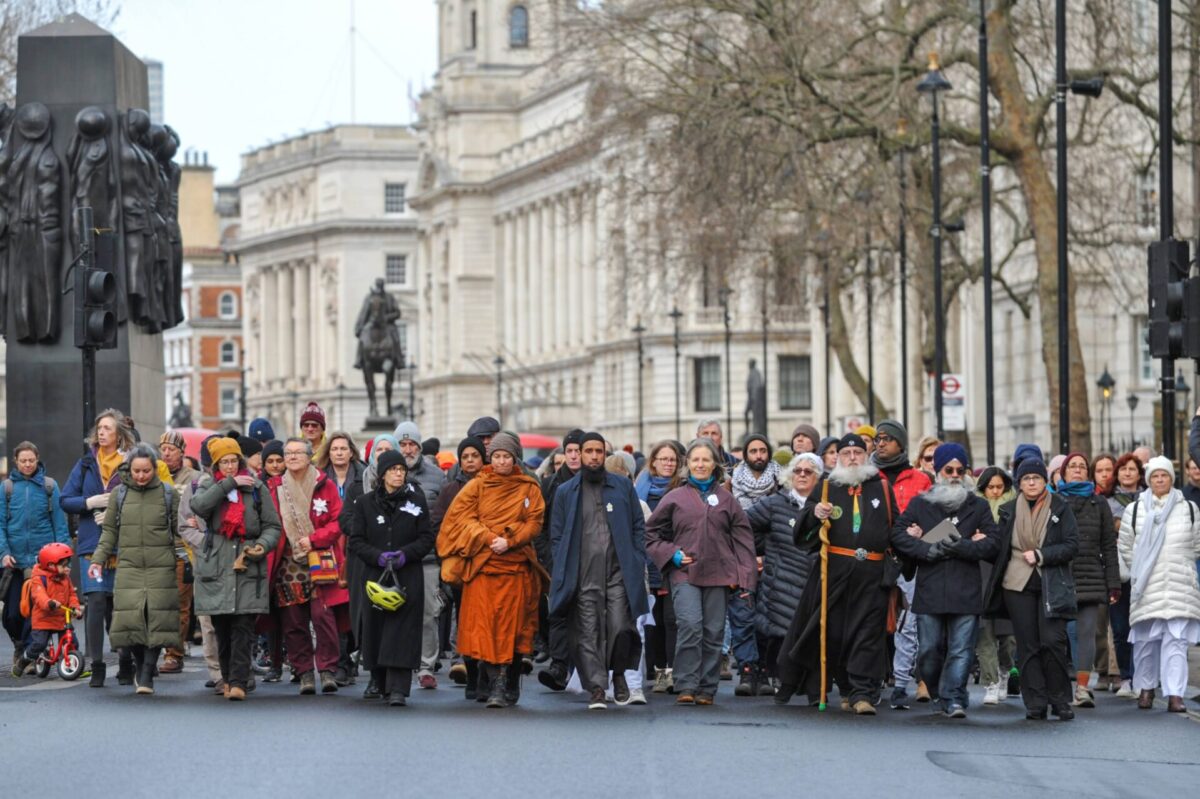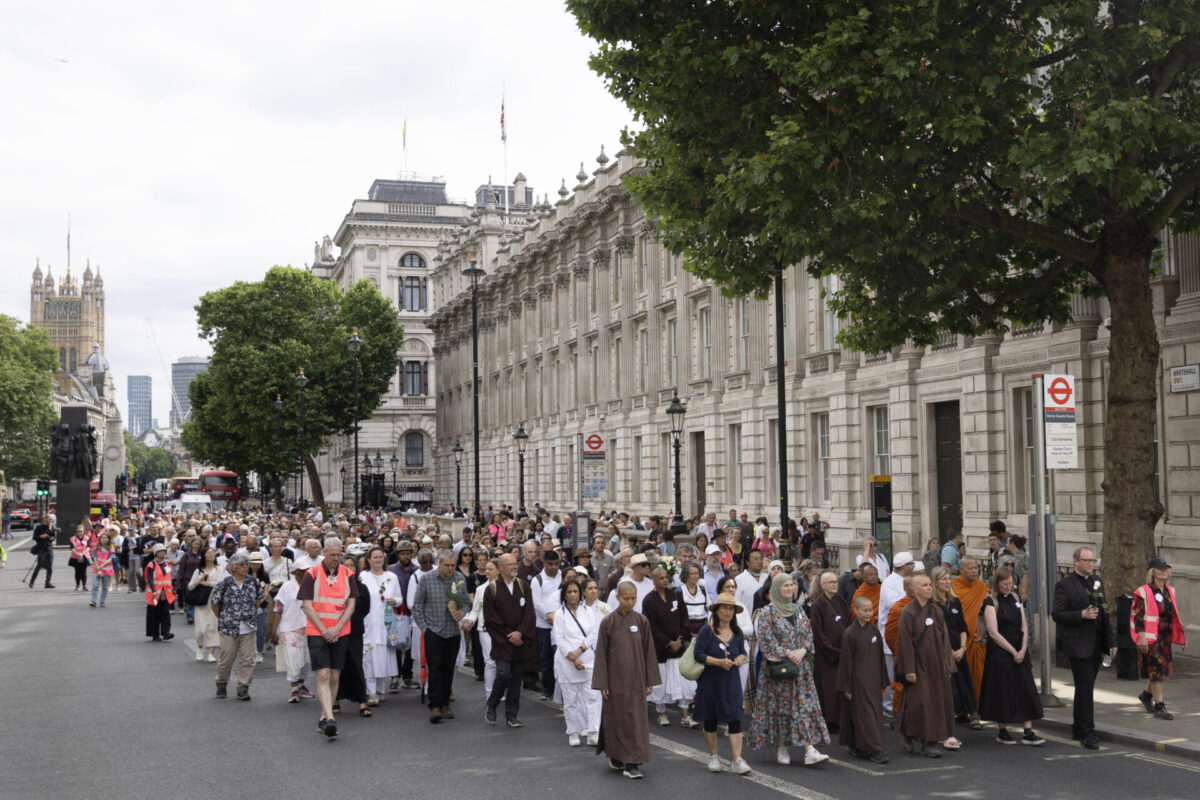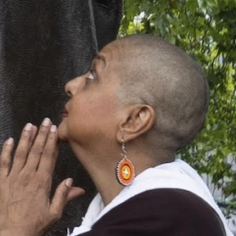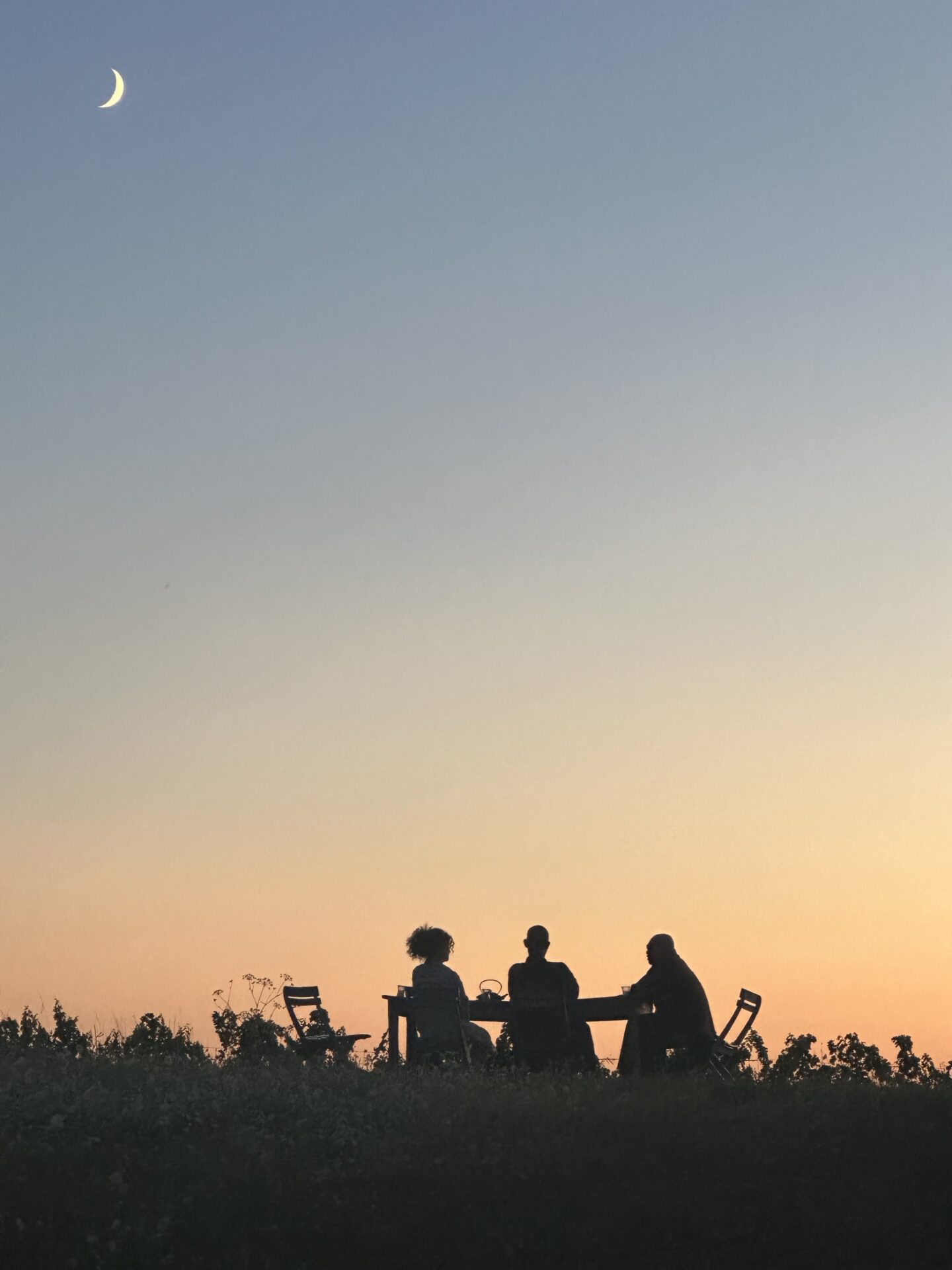Order of Interbeing member rehena Harilall calls for Love in Action for Black History Month UK, October 2025
By rehena Harilall on
While US Black History Month is widely recognised, its UK counterpart often feels like a sidestory—nodding to a few familiar heroes while the deeper truths of colonial exploitation remain in the shadows. Black history is not a footnote—it is Britain’s foundation,
Order of Interbeing member rehena Harilall calls for Love in Action for Black History Month UK, October 2025
By rehena Harilall on
While US Black History Month is widely recognised, its UK counterpart often feels like a sidestory—nodding to a few familiar heroes while the deeper truths of colonial exploitation remain in the shadows. Black history is not a footnote—it is Britain’s foundation, built on enslaved labour, resources of the colonised and stolen Indigenous lands. The British Empire’s profits still circulate, carrying the dust and blood of ancestors absent from history books.
Britain celebrates the abolition of slavery as a moral triumph, yet incurred massive debt to compensate slave owners—a debt only settled in 2015. Descendants of the enslaved, including me, helped repay families who profited from our stolen lives.¹

I carry these legacies in my blood. My Indian ancestors lived in Bodhgaya—the place where the Buddha awakened—before colonial railways displaced them to export wealth to Britain. Then they were shipped across the feared kala pani² (black water) as indentured labourers on contracts they could not read, growing sugar cane in burning South African sun.
My African lineage bears slavery’s wounds—severed from land, language, and community. These streams converge in me, marked by empire’s hunger for wealth and power, bred greed, aversion and hatred.
Growing up in apartheid South Africa, I learned justice is not granted by the powerful but built through the courage and solidarity of the oppressed. As long as we divide and “other” one another—using race, religion, and colour as masks for greed and extraction—none of us will be free.
One of the empire’s most insidious tools is dehumanisation: convincing oneself that others are “less human”—less deserving of dignity or life—makes seizing land, stripping resources, and appropriating cultures easier.
This logic is not confined to history. It lives in our communities, our sanghas, within us still—in subtle assumptions about whose voices matter, whose skills are rewarded, whose stories remembered, whose suffering recognised. These are the seeds of imperial thinking we must transform to cultivate beloved communities. In Britain today, we see this same logic in the growing right wing and the silence of those seeking “peace” amid rising hostility toward migrants and asylum seekers—lives reduced to burdens or threats, rather than recognised as kin.
Liberation as love in action
Dharma practice teaches me that liberation is inseparable from love—for people, for land, and for the futures we imagine. Liberation and inclusive communities require transforming the structures and unconscious narratives that perpetuate oppression.
We pause with gratitude for those who sacrificed for freedom, whose courage resisted inequity. We breathe with our land, spiritual, and genetic ancestors, seeking guidance to dismantle the ignorance that still hinders liberation.
Thích Nhất Hạnh reminds us to “look deeply” into suffering’s roots—and the conditions for its transformation.3 Colonialism and imperialism were interlocking systems: plantations and the slave trade, the partition of India, the Trail of Tears, today’s land seizures in Gaza. The logic is the same: dehumanisation to seize land, strip resources, and sever people from Earth.
But resistance rises in response: women of India’s Chipko movement marrying trees, Palestinians defending 500-year-old olive groves, Indigenous people protecting forests and water. Genocide is ecocide—a war on people and the Earth. Different lands, different times—the same truth: protecting land is protecting life.

In the West Bank this year, I witnessed a magnified, modernised apartheid—intensified violence using contemporary tools of surveillance and destruction: checkpoints, separations, machine guns clasped in civilian hands, drones monitoring and launching grenades to intimidate people of the land—all in the name of “peace.” Possibly the only non-Palestinian Black Buddhist and Plum Village practitioner there—a South African who grew up under apartheid—I bore witness, steadied by resilience, carrying the strength of my ancestors and Plum Village practice. In the echoes of my South African experience I remembered the eternal truth: freedom anywhere must be freedom everywhere.
Nelson Mandela said: “Our freedom will be incomplete without the freedom of the Palestinian people.”4 This truth is also the bodhisattva’s path: our own awakening and liberation remain incomplete while others remain in suffering.
Ubuntu teaches: “I am because we are.” Ubuntu and Interbeing echo one another: to harm one is to harm all. We are connected not only with plants, rivers, and the Earth, but with one another as human beings bound in shared struggles for dignity and liberation. To see interconnectedness yet turn away from suffering does not deepen insight—it dilutes it. Both teachings demand compassion lived as action.
Reparations are not only financial; they are acts of re-pair—mending broken relationships with each other and with the Earth itself. The wounds of people and planet are interwoven: poisoned rivers and stripped forests mirror stolen lives. We cannot “care for the Earth” while ignoring the empire, colonialism, militarism, and racism—nor “end racism” while polluting the water and soil of communities of colour. Repair is not charity. It is karmic responsibility.
A call to remember, act—and find joy
I often imagine the Buddhist sangha as a refuge free of worldly flaws. Yet just as Christianity was misused to build the empire, Buddhism too can mask greed, aversion, and ignorance. The Dharma doesn’t float above society untouched; it absorbs our time’s flawed narratives.
Sanghas carry the same patterns of power and exclusion as wider society, often replicating the inequalities they claim to transcend. Belonging to one does not guarantee inclusion, nor does reciting mindfulness trainings dissolve racism, sexism, or imperial habits.
Dharma language can also silence and oppress—phrases like “we are all one” or calls for “neutrality” in the face of injustice reinforce conventional power structures, while appearing spiritually mature, thus closing off transformation rather than opening to it, reinforcing “good person” narratives.
This isn’t condemnation but clear seeing: sangha is made of humans—flawed, yet capable of change. Only by recognising and transforming how bias and exclusion live within our practice spaces can we truly embody the beloved community we aspire to build.
The Tenth Mindfulness Training reminds us: “not taking sides” does not mean refusing to act. Our ethical position must be clear—nonviolence, protecting life, refusing harm. Equanimity is not passivity. When harm and danger rise, equanimity calls for action. Neutrality in the face of oppression and injustice risks becoming delusion.
In our practice, we are called to look deeply—to see where our silences shelter us from the discomfort of transformation, and ask whether that silence is rooted in fear, convenience, or compassion. Nonviolence is not passive; it is an active choice to protect life without causing harm. When our words and actions are grounded in loving nonviolence, we resist without dehumanising, refusing to perpetuate greed, hatred, and delusion.
Mindfulness grounds us in clarity. We practise not to hate those who hate, but to open the heart again and again. Our enemies are greed, hatred, and delusion—never one another. Love in action is standing for life, speaking truth with compassion, resisting without dehumanising.
Let this month be more than remembrance: learn the histories Britain prefers to forget and stand accountable wherever lives and lands are under threat. Our freedom is bound with Palestine’s freedom, and with all peoples struggling for dignity. To honour this truth is to stand for life—Palestinians, Sudanese, Haitians, migrants and refugees—and to stand against the empire’s machinery of colonisation, genocide, and displacement. Naming truth is the first step in healing.
Avalokiteśvara (Kuan Yin), often depicted seated with one leg extended, ready to act, shows compassion is never passive. Compassion listens—then acts, free of self-interest. Like Avalokiteśvara, we must listen deeply—and act.
Bhikkhu Bodhi warns that if Buddhists do not actively engage in the transformation toward a just world the Dharma risks becoming marginalised—a lifeboat admired while the ocean of suffering rises.5
Be engaged in change—not only when visible, but in daily life when no one is watching. Practise loving resistance in speech, work, and choices. Build kinship—seeing your freedom bound with the freedom of others.
True solidarity recognises that dialogue alone is not enough when power is vastly unequal. When one group can dismiss or deny another’s reality, conversation may comfort the powerful rather than advance justice. Thích Nhất Hạnh reminds us that right speech includes right timing—knowing when the soil is ready for understanding to grow. We must shape and tend conditions for that growth.
True allyship requires the courage to act imperfectly, to learn from missteps, and to choose solidarity over the comfort of appearing good—or remaining frozen in inaction.
Gather in sangha—true community—to hold both the grief of trauma and the joy of healing. Sangha is more than a meditation circle; it is a refuge rooted in ethical clarity. If we soften the call for justice to preserve surface harmony, it may appear peaceful, but it is not true refuge. A living sangha must have the courage to bear suffering together and the integrity to act together in love.
Joy is part of that courage. Joy is not a luxury; it is resistance—planting seeds for trees we may never sit beneath, singing under tin roofs, the scent of cardamom saying: we are still here. Archbishop Tutu’s laugh under apartheid was not denial but defiance—an insistence on our common humanity.
Liberation—human, ecological, and spiritual—is not seasonal. It is the work of our lifetime.
In the course of history, there comes a time when humanity is called to shift to a new level of consciousness—to reach a higher moral ground.6
—Wangari Maathai
That time is now.
¹ For the 1833–37 compensation to slave owners and the debt redeemed in 2015, see UCL’s Legacies of British Slavery project; and K. Manjapra, “The Scandal of the British Slavery Abolition Act Loan,” Journal of British Studies (2019). https://www.ucl.ac.uk/made-at-ucl/stories/legacies-british-slavery
² On kala pani (sea-crossing) taboo and fear among 19th–20th-century Indian indentured migrants—including ostracisation and loss of caste status. https://sahistory.org.za/sites/default/files/archive_files/Across%20the%20Kala%20Pani%20Untold%20Stories%20of%20Indentutred%20Women%20of%20Christian%20Origin%20in%20South%20Africa%20by%20Rowanne%20Sarojini%20Marie.pdf
³ Thích Nhất Hạnh, The Heart of the Buddha’s Teaching (various editions)—“looking deeply” as seeing roots/conditions of suffering.
⁴ Nelson Mandela, Address on the International Day of Solidarity with the Palestinian People, Pretoria, 4 Dec 1997: “But we know too well that our freedom is incomplete without the freedom of the Palestinians.” http://www.mandela.gov.za/mandela_speeches/1997/971204_palestinian.htm
⁵ Bhikkhu Bodhi on Engaged Buddhism and the risk of a marginalised Dharma: see “Engaged Buddhism: The Need of the Hour,” Tricycle (2010), and later essays/interviews via Buddhist Global Relief. (Paraphrase.) https://tricycle.org/magazine/bhikkhu-bodhi/
6 The Nobel Prize, “Wangari Maathai.” accessed October 1, 2025 https://www.nobelprize.org/prizes/peace/2004/maathai/lecture/


